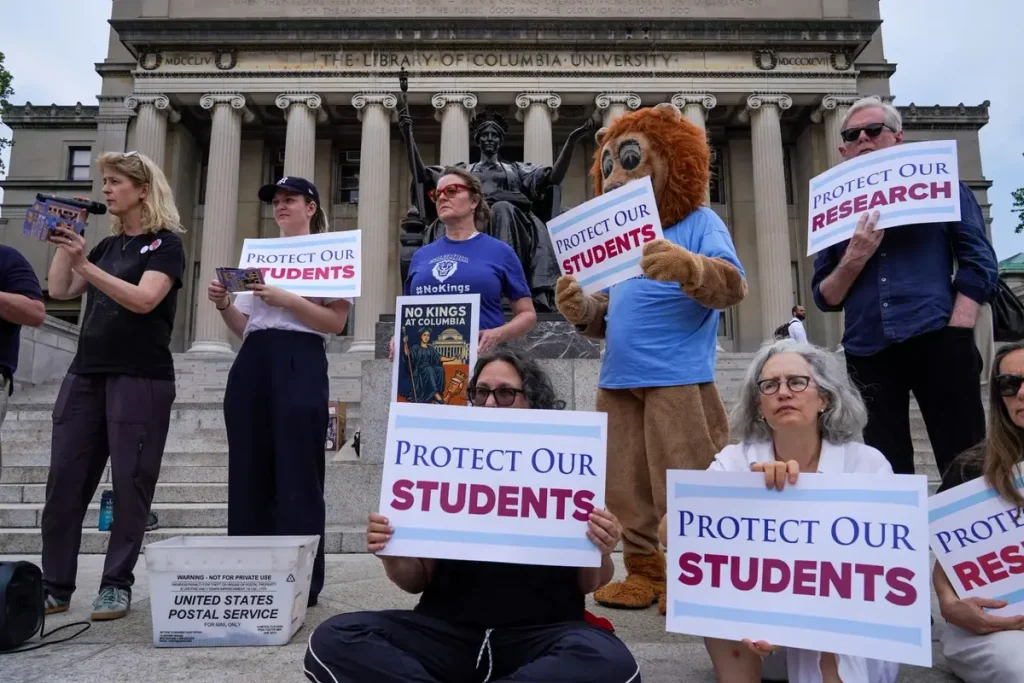Columbia University has agreed to a $220 million settlement with the Trump administration, resolving federal investigations into alleged civil rights violations and restoring access to critical federal research funding. The agreement comes after months of tension between the Ivy League institution and the federal government over accusations of insufficient action against antisemitism on campus during the Israel-Gaza conflict.
Columbia University Settlement Details
Under the terms of the agreement, Columbia University will pay $200 million over three years to the federal government and an additional $21 million to settle investigations conducted by the U.S. Equal Employment Opportunity Commission (EEOC). This settlement addresses claims that the university failed to adequately protect Jewish students and faculty from harassment and discrimination during the pro-Palestinian protests that erupted in 2023.
In return, the federal government has agreed to reinstate approximately $400 million in federal grants that were suspended in March 2025. These funds are crucial for supporting the university’s extensive research initiatives across various disciplines. Columbia’s leadership emphasized that this resolution allows the institution to continue its mission of teaching, discovery, and public service without compromising its academic independence.
As part of the settlement, Columbia University has committed to implementing several reforms aimed at addressing the concerns raised by the federal government. These include:
-
Adopting a new definition of antisemitism to guide campus policies and responses.
-
Overhauling student disciplinary procedures to ensure a more consistent and transparent approach.
-
Disciplining over 70 students involved in the Gaza war protests, with actions ranging from suspensions to expulsions.
-
Hiring a liaison to the Jewish community to foster better communication and support.
Columbia’s leadership maintains that these measures are necessary to create a safe and respectful campus environment, while also ensuring that the university’s autonomy in academic and operational decisions remains intact.
The settlement has elicited a range of responses from the Columbia community. Some faculty members and student groups have expressed support for the reforms, viewing them as steps toward fostering a more inclusive and secure campus. However, others have criticized the agreement, arguing that it represents an overreach by the federal government into academic affairs.
Professor David Pozen of Columbia Law School described the settlement as “legal form to an extortion scheme,” warning that it sets a concerning precedent for government interference in higher education.
Broader Implications
This settlement is part of a broader initiative by the Trump administration to hold higher education institutions accountable for their handling of campus protests and incidents of discrimination. The administration has previously threatened similar actions against other universities, signaling a potential shift in federal oversight of academic institutions.
While Columbia University has agreed to certain reforms, it has not admitted to any wrongdoing and continues to assert that it has always strived to maintain a safe and inclusive environment for all students and faculty. The university’s leadership has emphasized that the settlement is a pragmatic decision to restore essential funding and avoid further disruptions to its operations.
As Columbia University moves forward with the implementation of the settlement terms, it faces the challenge of balancing federal requirements with its commitment to academic freedom and institutional autonomy. The coming months will be critical in determining how these changes are integrated into campus life and whether they lead to lasting improvements in addressing issues of discrimination and campus safety.
The resolution of this dispute also raises important questions about the role of federal government in regulating campus policies and the extent to which universities should be held accountable for the actions of their students and faculty. The outcomes of this case may serve as a precedent for future interactions between higher education institutions and federal authorities.


